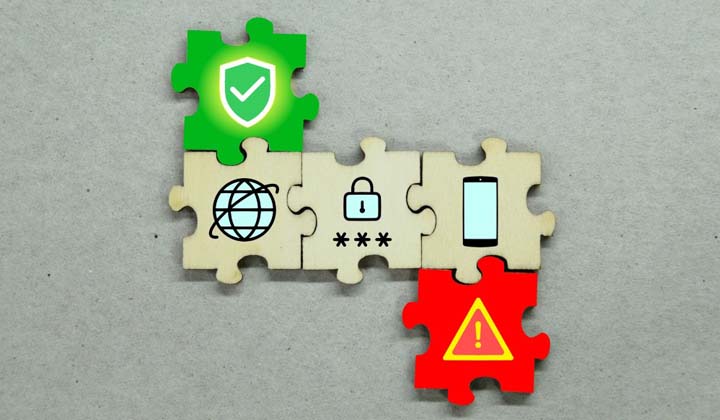Website Application Security Practices
While it’s scary to think about someone hacking your site, don’t worry – you can prevent it. You should implement these seven security practices on your company’s website!
1. Use HTTPS
Using HTTPS is one of the first and most important steps to securing any website. Many websites use the HTTP protocol, but HTTPS encrypts the data on your site.
Using HTTPS not only provides a basic layer of security but can also help you attract and retain more traffic. Your website ranks higher in Google search results if your server is HTTPS-encrypted since Google prioritizes HTTPS sites.
Also, users will be assured that their connection is secure when they visit your website, causing them to stay longer and be more willing to share financial information in your online store, if you have one.
2. Use strong passwords and 2FA
Passwords are another important component of web security. Your last concern should be that a hacker can easily guess your password and gain access to your website.
It is important to choose passwords that are difficult to guess and to change them on a regular basis to ensure your security. In addition, consider two-factor authentication (2FA). Two-factor authentication is a security measure that requires a password, as well as a call or text message to verify your identity before logging in to a website.
Using this method ensures that you are the one who logs into your website every time, rather than a hacker who knows your password. Each member of your company with access to your website should use a strong password and two-factor authentication.
3. Back up your website
Despite the best efforts of all the security systems, there are times when even the best defenses fail to provide adequate protection. If it occurs to you, make sure you are prepared for the cleanup. The best way to do this is to make a backup of your site.
You can back up your website using a variety of programs. The reason this is an important step is that if hackers compromise your website, they may end up destroying it. With regular backups of your website, you can always restore it with the click of a button once the hackers have left.
4. Routinely scan for malware
Malware is one of the most common ways hackers or bots break into sites. It’s easy for hackers to get malware on your site, but once it’s there, it does a lot of damage. Watch out for any viruses that pop up.
There are a bunch of tools you can use to scan your website, and you should use them. You need a solution that can stop malware the moment it appears, destroying it before it can do any damage.
5. Run penetration tests
Penetration tests are another top-notch web safety practice, where you simulate attacks to find vulnerabilities.
Penetration testing looks for vulnerabilities in your system. To do this, it simulates hackers and bots trying to break into your site, and if it finds a way in, it alerts you so that you can repair the problem.
It is possible to perform automatic penetration testing using different online tools, or you can have a team of experts perform it manually.
6. Install website security plugins
On this list, we have mentioned web security plugins a few times, but they deserve their own entry. Because you cannot see all security problems with the naked eye, it is important to have programs running in the background to maintain your site’s security.
Online, there are a variety of web security plugins available that perform a variety of functions. Many organizations keep an eye out for malware, others conduct vulnerability scans, and still others combat viruses and hackers.
Make sure you have at least a few plugins on your site, if possible. Those plugins will prove invaluable in protecting your website from attacks.
We can help you implement your web security tactics
Do you need assistance implementing these web safety practices? No problem – just contact MaxLeads the best digital marketing agency in Kuala Lumpur(KL), Malaysia!
We will assist you in implementing all the above website security practices and more when you partner with us for our web security services. In addition, you will receive a dedicated account representative who will keep you informed about everything we do for your website.
Contact us online or call +6011 3709 1985 to get started.


Write a Comment